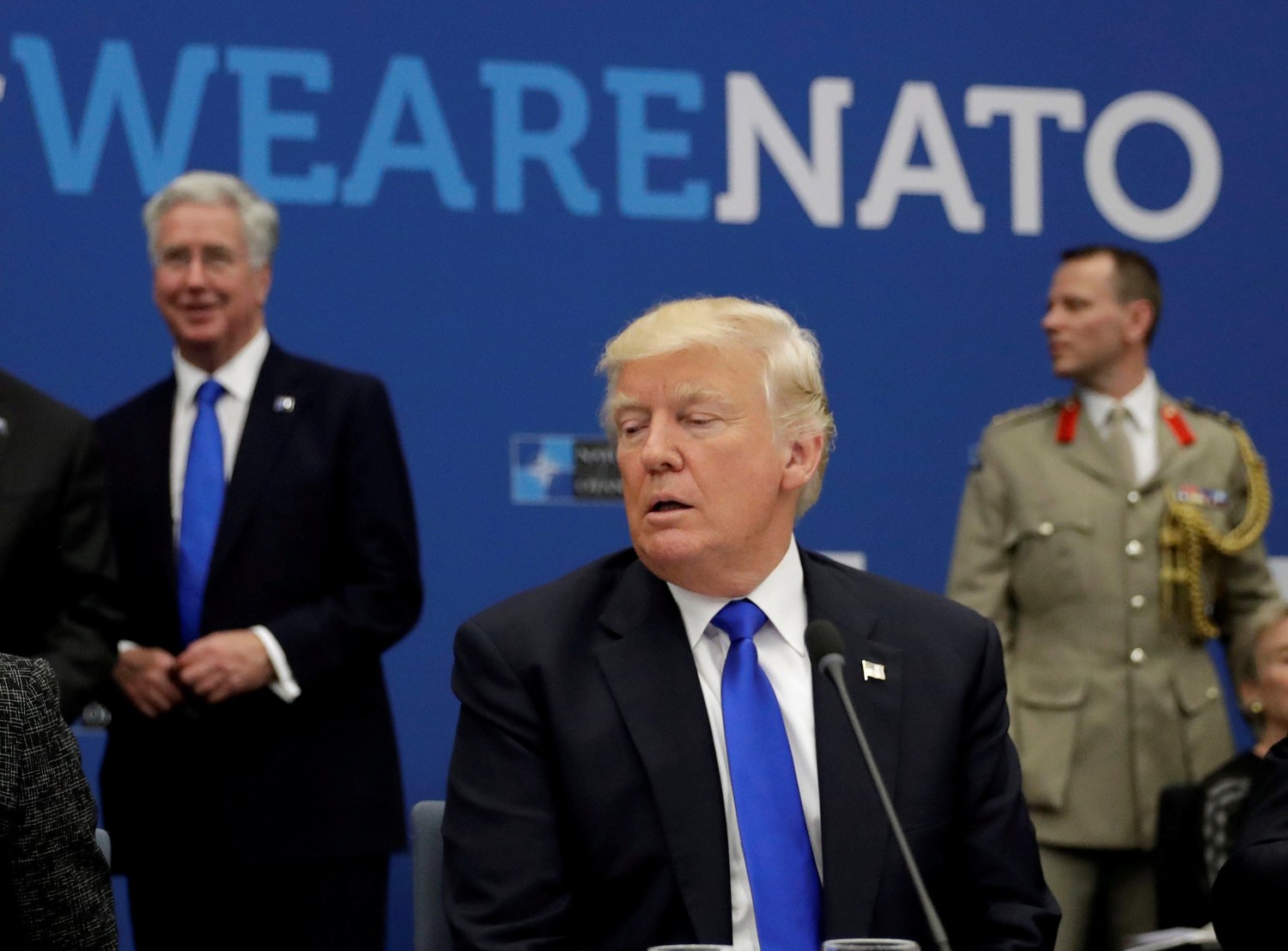
Given the danger of a conventional war with Russia, more NATO countries than before need to reach the 2% target in defense spending.
Donald Trump has done it again. He is causing outrage and making headlines not only in the U.S. where the election campaign is slowly heating up, but worldwide.
His announcement that, if re-elected as U.S. president, he would not militarily support delinquent NATO partners if they were attacked has offended many camps. The explanation offered by the Republicans’ brute was straightforward, as it always is with right-wing populists: Those who don’t spend enough on their military will not be protected by the U.S. Period.
With that statement, he was not only challenging the “holy of holies” of the NATO treaty, the mutual defense obligation in Article 5: If an alliance member is attacked, the others view it as an attack on them all — and defend themselves as a collective. This principle has functioned even with nuclear deterrence, not just during the Cold War. Trump also took it a step further. The ex-president said that he would “encourage” an attacker — his buddy Vladimir Putin — to do “whatever the hell they want” with those who had not paid up.
Failures
Sitting U.S. President Joe Biden gave the only correct response, saying that Trump’s outbursts were ”shameful,” “dangerous,” and “un-American.” For one, the U.S. needs its NATO partners just as much as they need it, although it is, of course, the alliance’s leading power. There has only been one time in history that the alliance acted together, after the Sept. 11, 2001, terrorist attacks. All members provided military, political, and diplomatic support.
One could return to the issues of the day and no longer deal with a dumb campaign speech from Trump, even if he could become U.S. president again, which would be just as unpleasant for Europe as it was in 2016–2020. However, Estonian Prime Minister Kaja Kallas said calmly in an interview with Der Standard that we would survive Trump this time around, too, and that the alliance partners would continue to cooperate with each other.
They are forced to do so. NATO as an alliance for defending freedom and democracy is not an end in and of itself. Trump’s attacks shine a blinding light on Europe’s major failures. His predecessor, Barack Obama, had done the same, sincerely yet insistently, in 2014 at the NATO summit in Wales and in 2016 in Warsaw. As early as then, after the shock of Russia having annexed the Crimean Peninsula, it was agreed that each state would invest 2% of their GDP in its military.
A significant number of member states (which include, with Sweden, 23 EU member states) have not come close to reaching that goal — just 18 of 31 to date, as NATO Secretary General Jens Stoltenberg announced. That is not even close to enough.
At the last NATO summit in July 2023 in Vilnius, “at least 2%” was agreed upon. Only the U.S. and Poland are spending more than 3%.
In addition, members agreed to increase available troops to 300,000 persons, to spend several additional billions on weapons and munitions, and to achieve many other goals. After two years of war in Ukraine, it is clear to everyone that with Russia, there is the threat of a nuclear attack. However, a conventional war is more probable, an attack like that in Ukraine. Most countries in Europe are simply not prepared for that. That is why they are now robustly arming themselves, not because of Trump.

Leave a Reply
You must be logged in to post a comment.